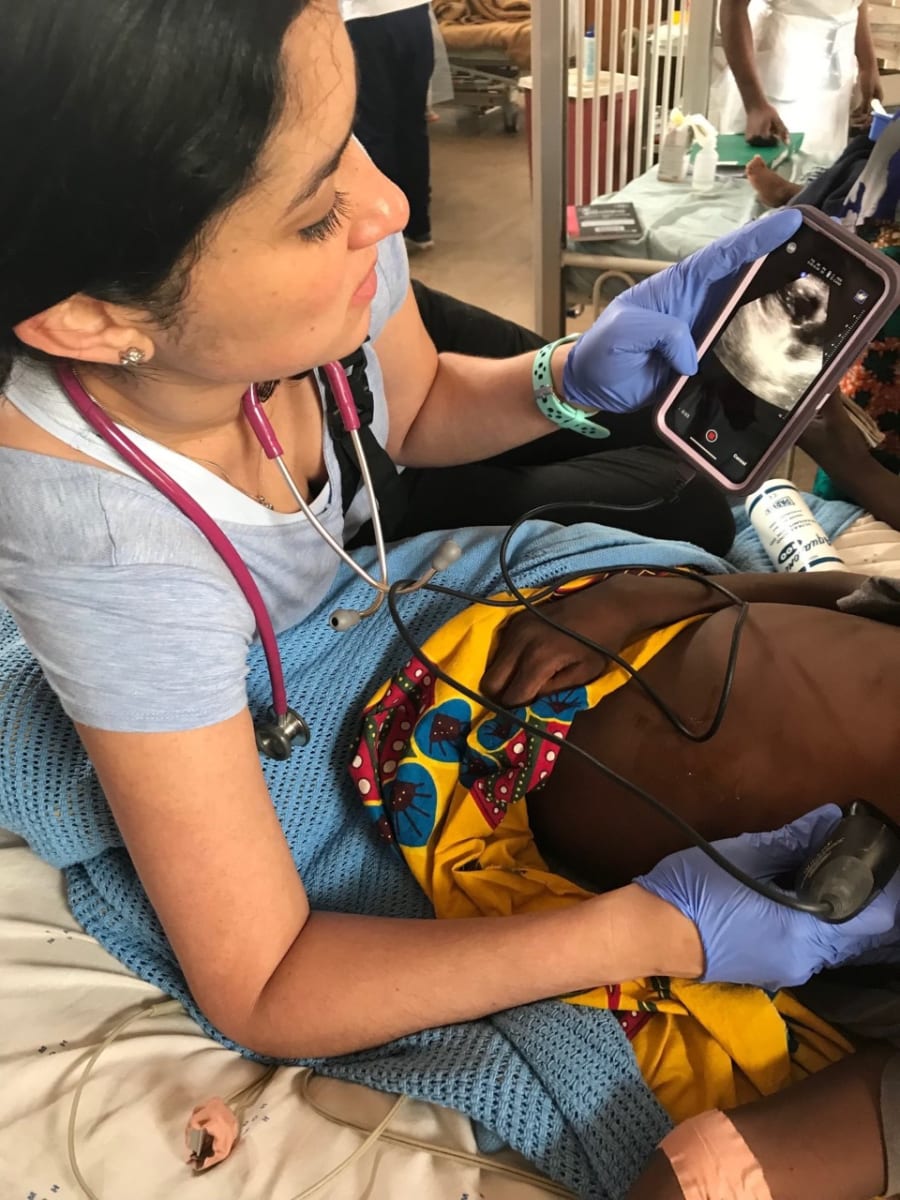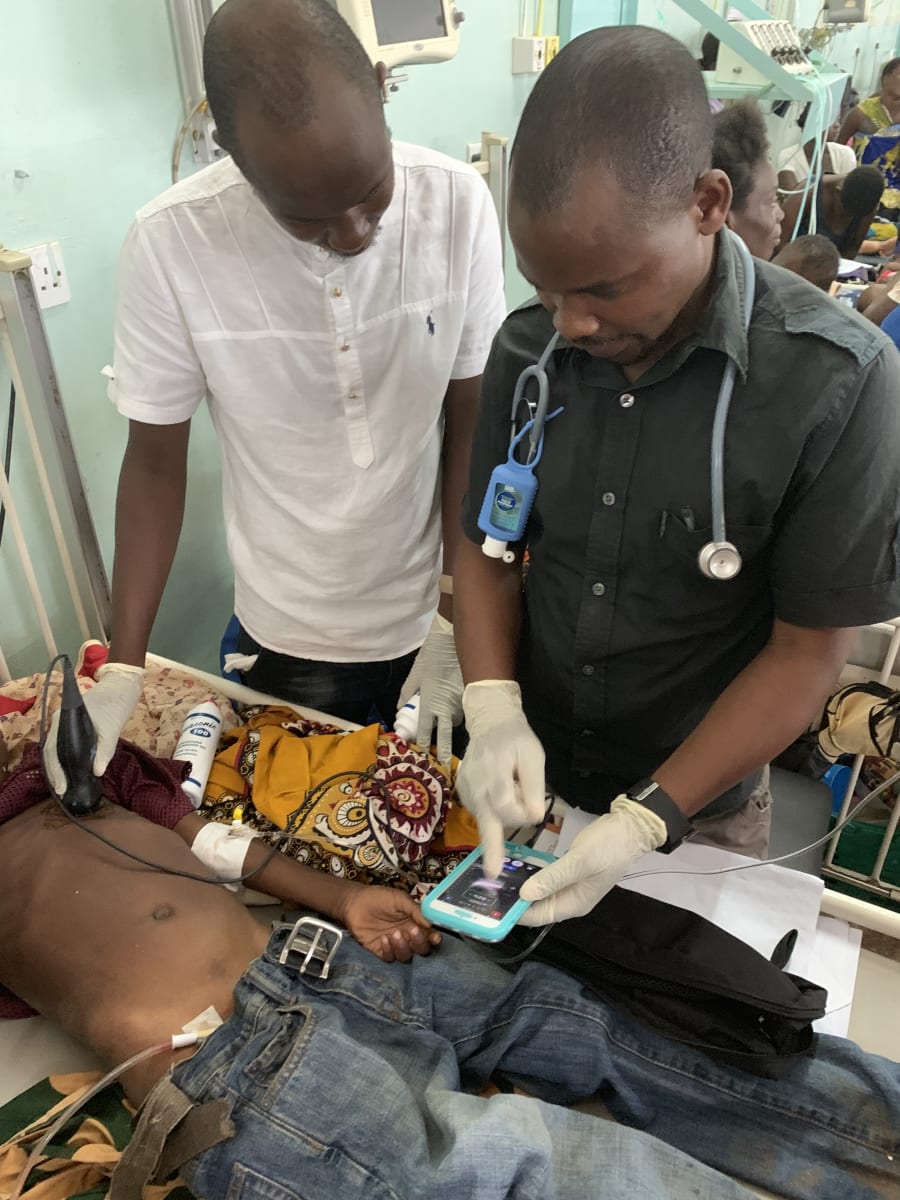This project aims to improve pediatric emergency care at Kamuzu Central Hospital (KCH) in Malawi through the creation and implementation of a point-of-care ultrasound education program in collaboration with an established US-based pediatric emergency medicine consortium on the ground named PACHIMAKE (Pediatric Alliance for Children Health Improvement In Malawi At KCH and Environs). Point-of-care ultrasound involves the use of ultrasound at the bedside as a diagnostic tool and therapeutic adjunct. Point-of-care ultrasound (POCUS) allows a clinician to use a portable ultrasound to acquire, interpret, and incorporate ultrasound findings in real-time at a patient's bedside. Studies show providers in resource-limited settings can accurately perform POCUS to identify various pathologies. We aim to create a novel and feasible ultrasound scanning protocol based on the most common and high yield diagnoses and to develop a locally-led, sustainable training program to improve the care of urgently and emergently ill children. Ultimately, we hope this project will be transferrable to other global health sites to further widen its impact.
KCH has identified training of its healthcare providers in POCUS as a priority this year and the training curriculum will begin in January. Our work will focus on performing a series of lectures focusing on skills, image acquisition, normal findings and pathology. We will then work side by side with the clinical officers and local providers at KCH and perform bedside ultrasounds while we provide care. We will have afternoon sessions to review pathology found during the day and discuss management techniques. We will also provide direct patient care in the emergency and critical pediatric areas in the hospital and serve as consultants to the pediatric wards. Additionally, we will provide ongoing mentoring over the next 1-2 years through rotating POCUS experts and online communication.
I will travel with pediatric ultrasound expert Dr. D'Amico.
Malawi is a landlocked country located in southeastern Africa with a significant health burden with a high under 5 mortality rate and a large prevalence of HIV/AIDS, tuberculosis, and malaria. Kamuzu Central Hospital is the national referral hospital in the capital city of Lilongwe serving the central region of Malawi. The pediatric ward admits more than 27,000 patients per year and manages all medical emergencies. In the emergency zone, a small staff of nurses and clinicians will care for often over 100 acutely and critically ill children each day. This project will serve to benefit this especially vulnerable population of sick children and the dedicated local clinicians who care for them.
This project will provide local clinician partners with skills in point-of-care ultrasound to better care for their critically ill children. Through the ability to have improved bedside diagnostics, children will be able to receive appropriate and faster medical care which has been shown to decrease mortality and improve long-term health outcomes. This project will not only teach clinicians in the skills of point-of-care ultrasound, but will also aim to train trainers, thus allowing knowledge to be passed on to others and to eventually function independently.




We traveled to Lilongwe Malawi to start the first Pediatric POCUS educational training program for clinical officers. As a team of pediatric emergency medicine physicians, we worked side by side with local providers demonstrating how bedside ultrasound aids in diagnosis of common pediatric conditions. In a hospital with very little imaging capacity, bedside ultrasound proved to be a quick and effective way to answer focused questions. We began our training with lectures and hands-on practice to a small group of local learners. At the end of the training, clinical officers were able to perform scans independently.
Learning bedside ultrasound requires practice and ongoing mentorship. We will continue to review scans and facilitate educational opportunities both locally and internationally for our trainees.
Using bedside ultrasound has facilitated ruling in and ruling out different diagnosis and promoting the use of adequate therapy for complicated patients. The people who are impacted the most are the children in the hospital and their families.